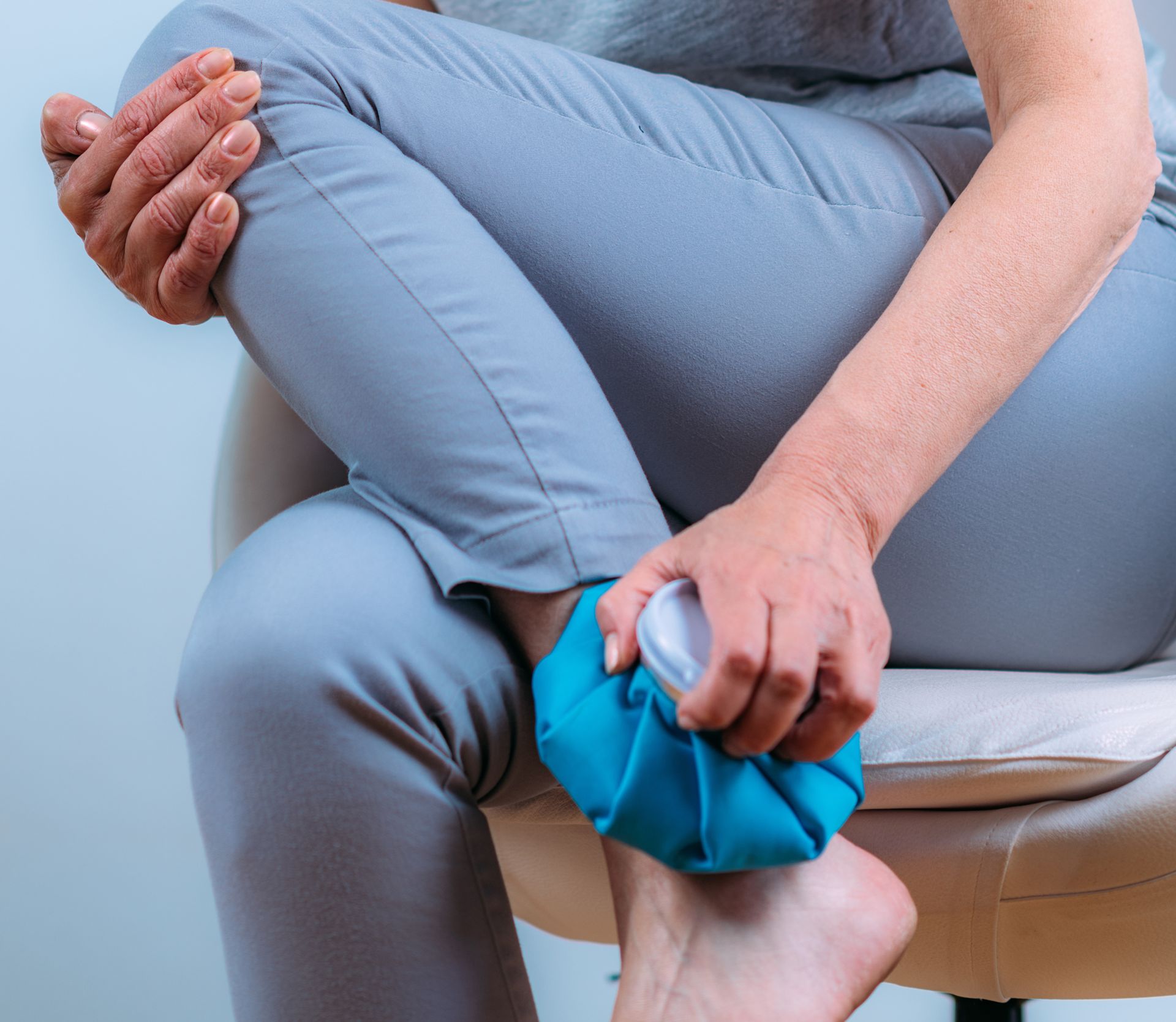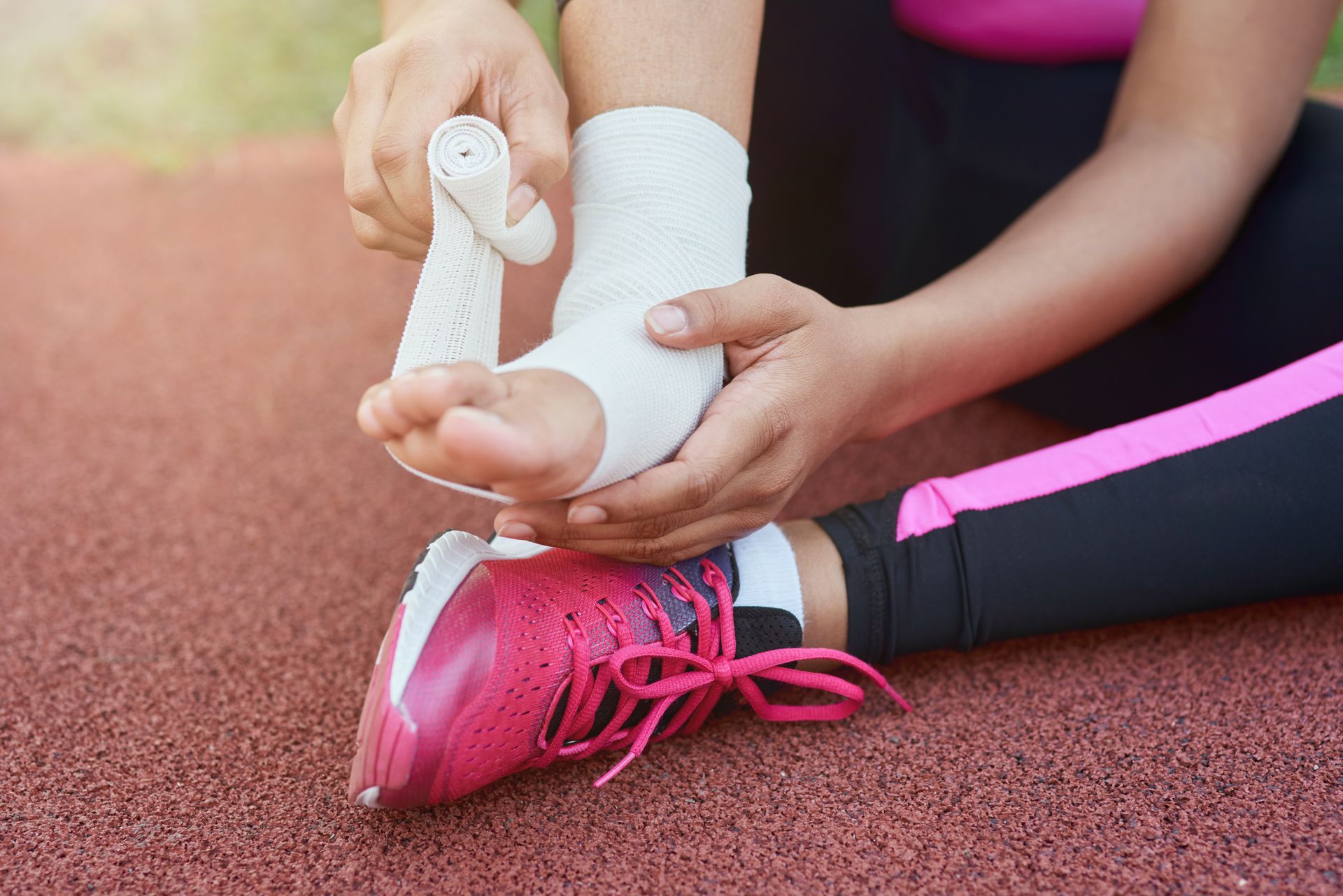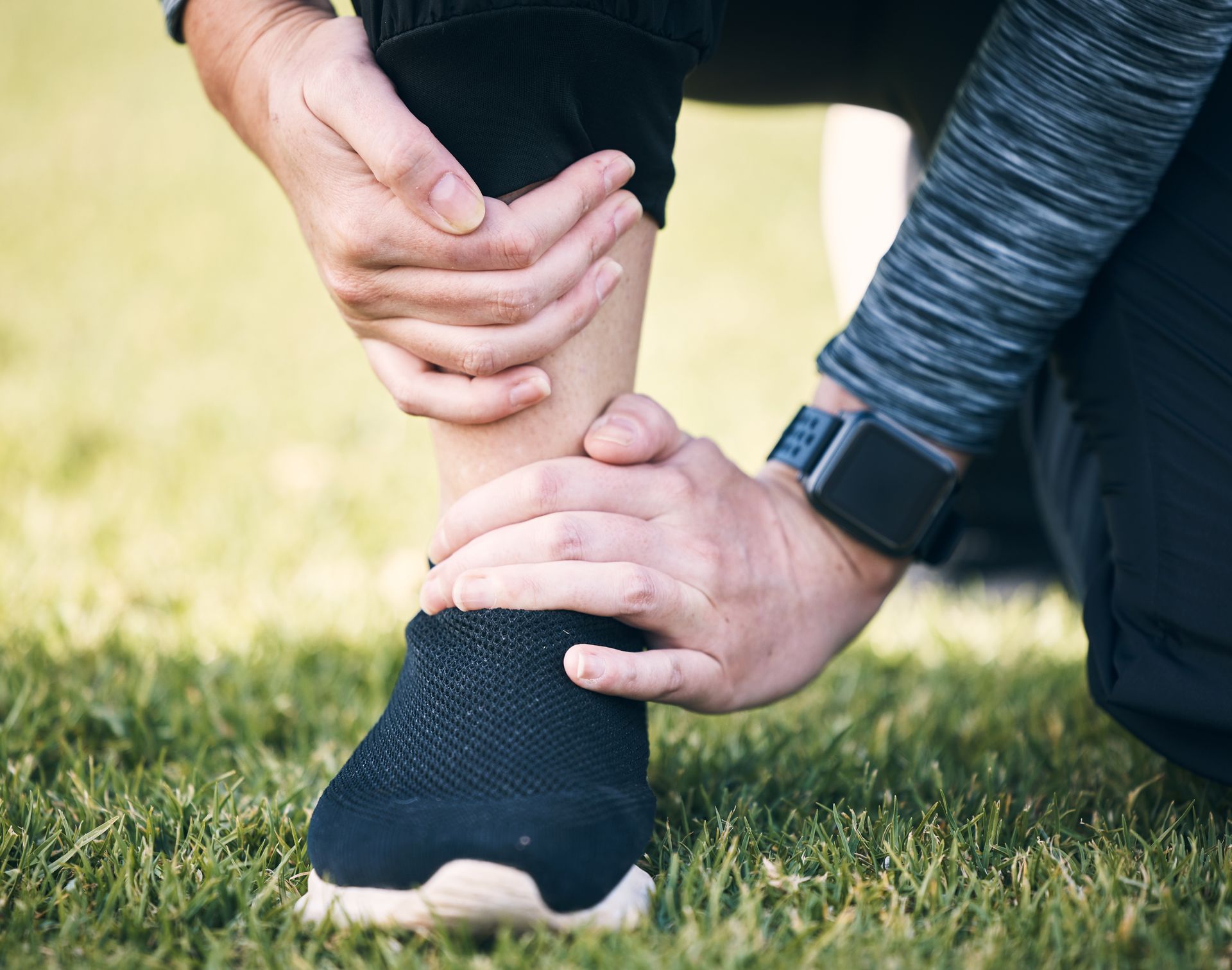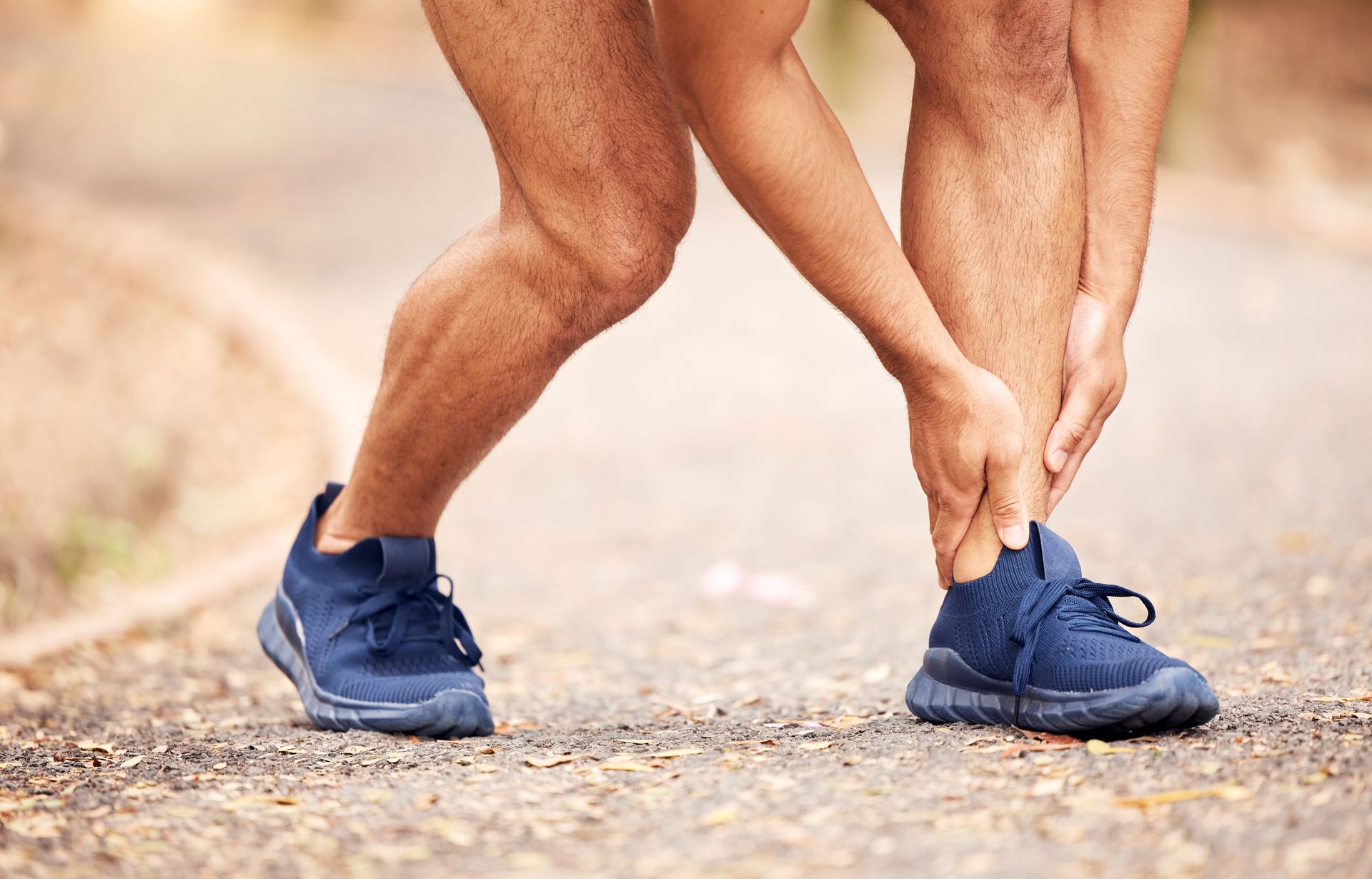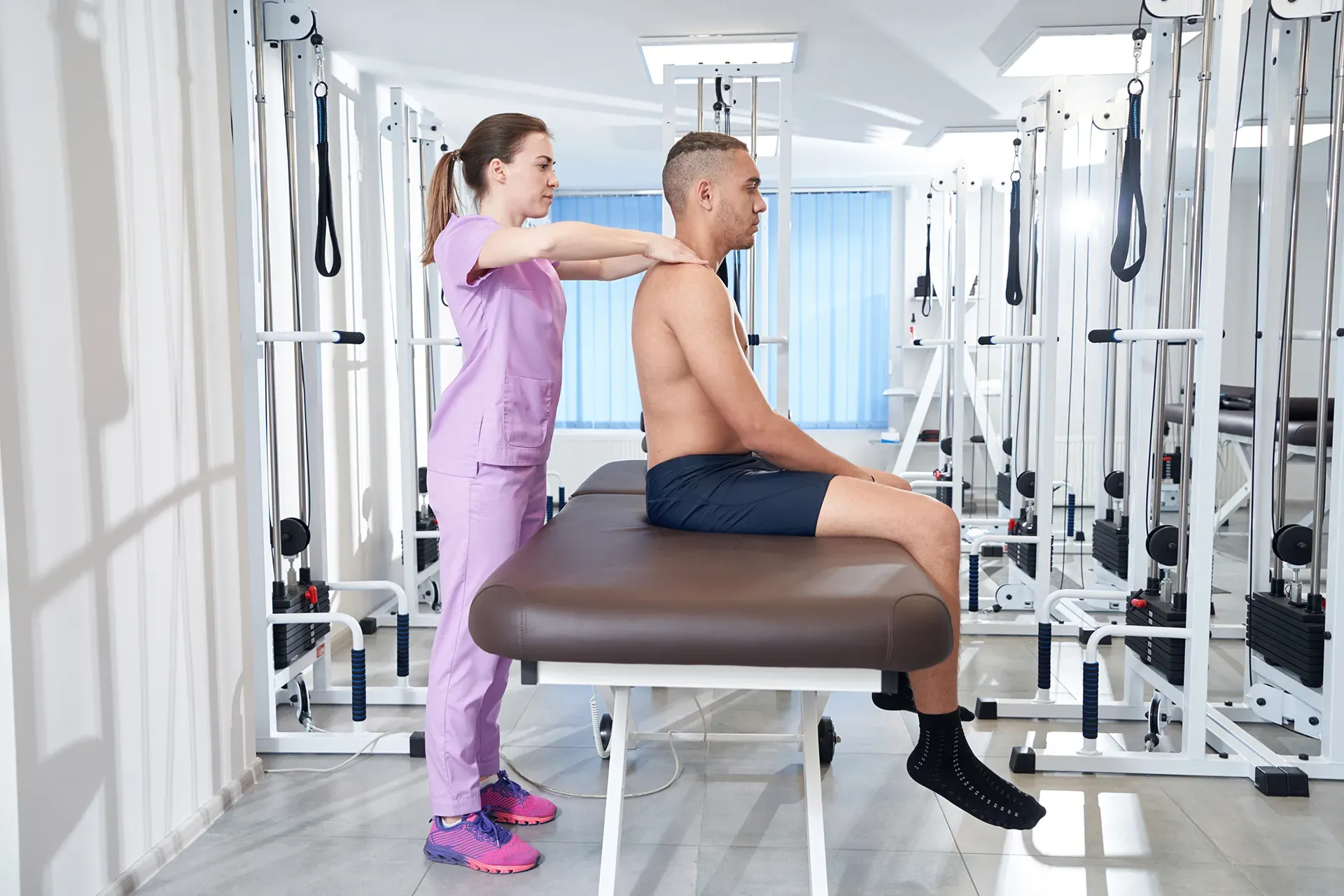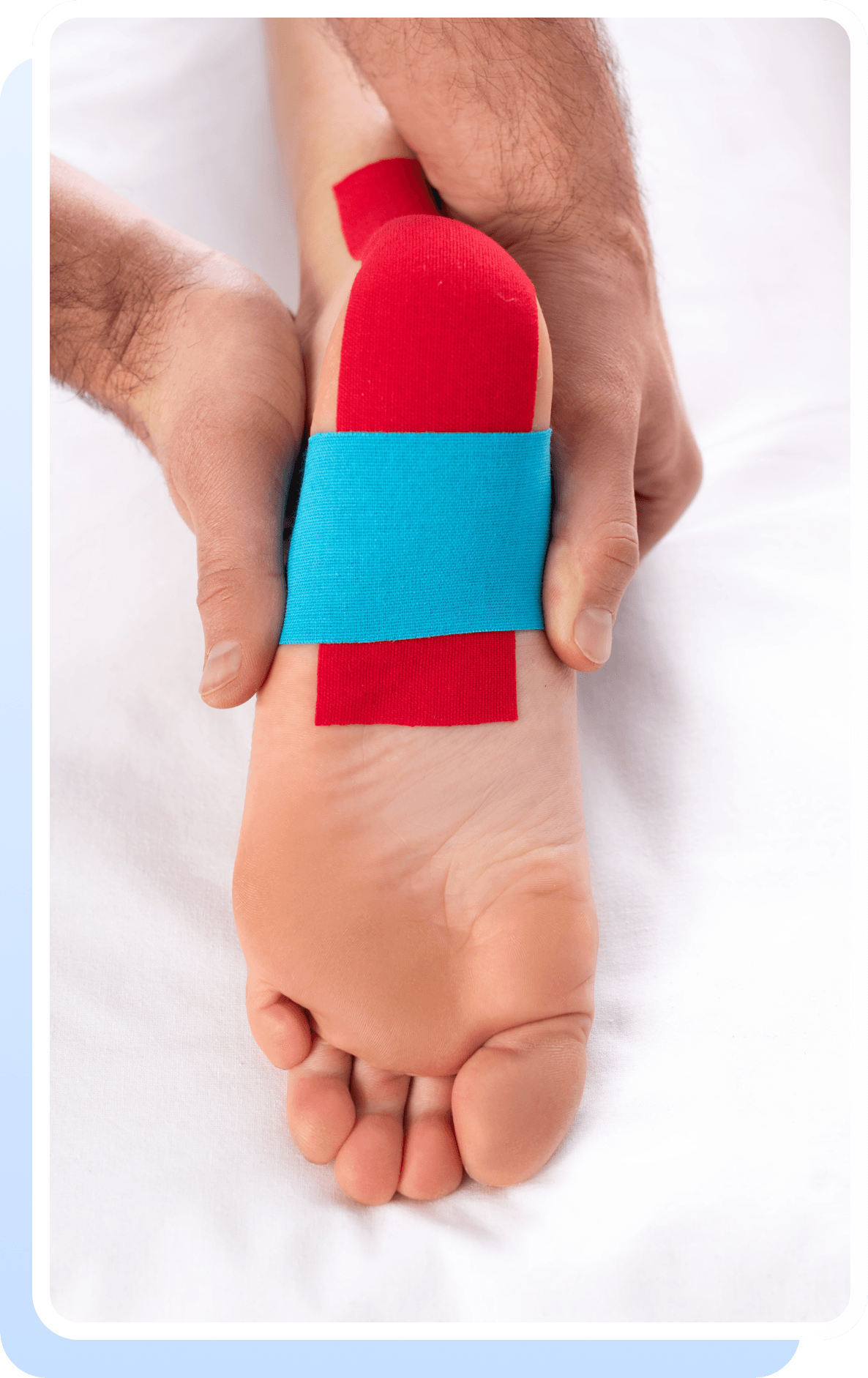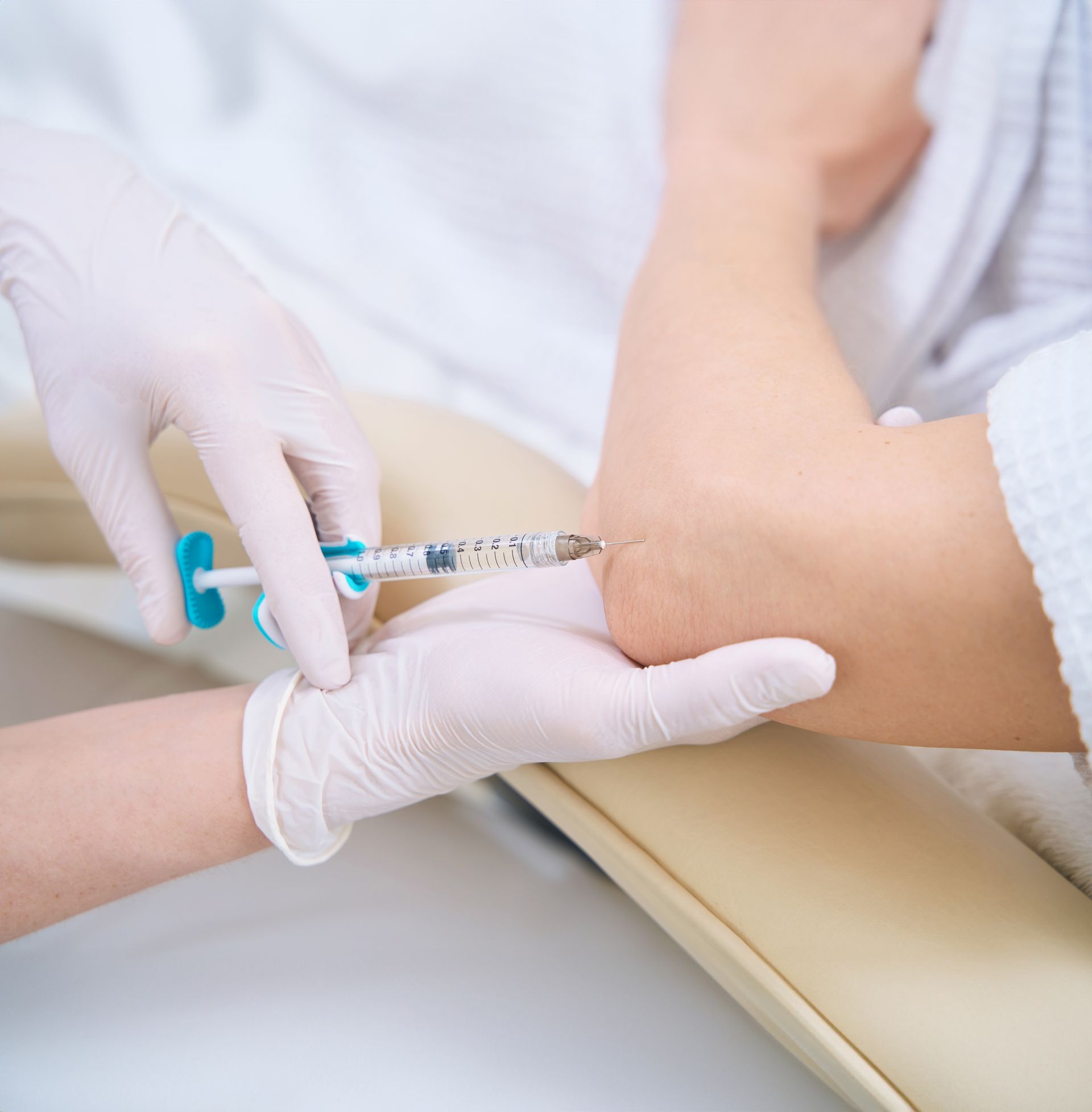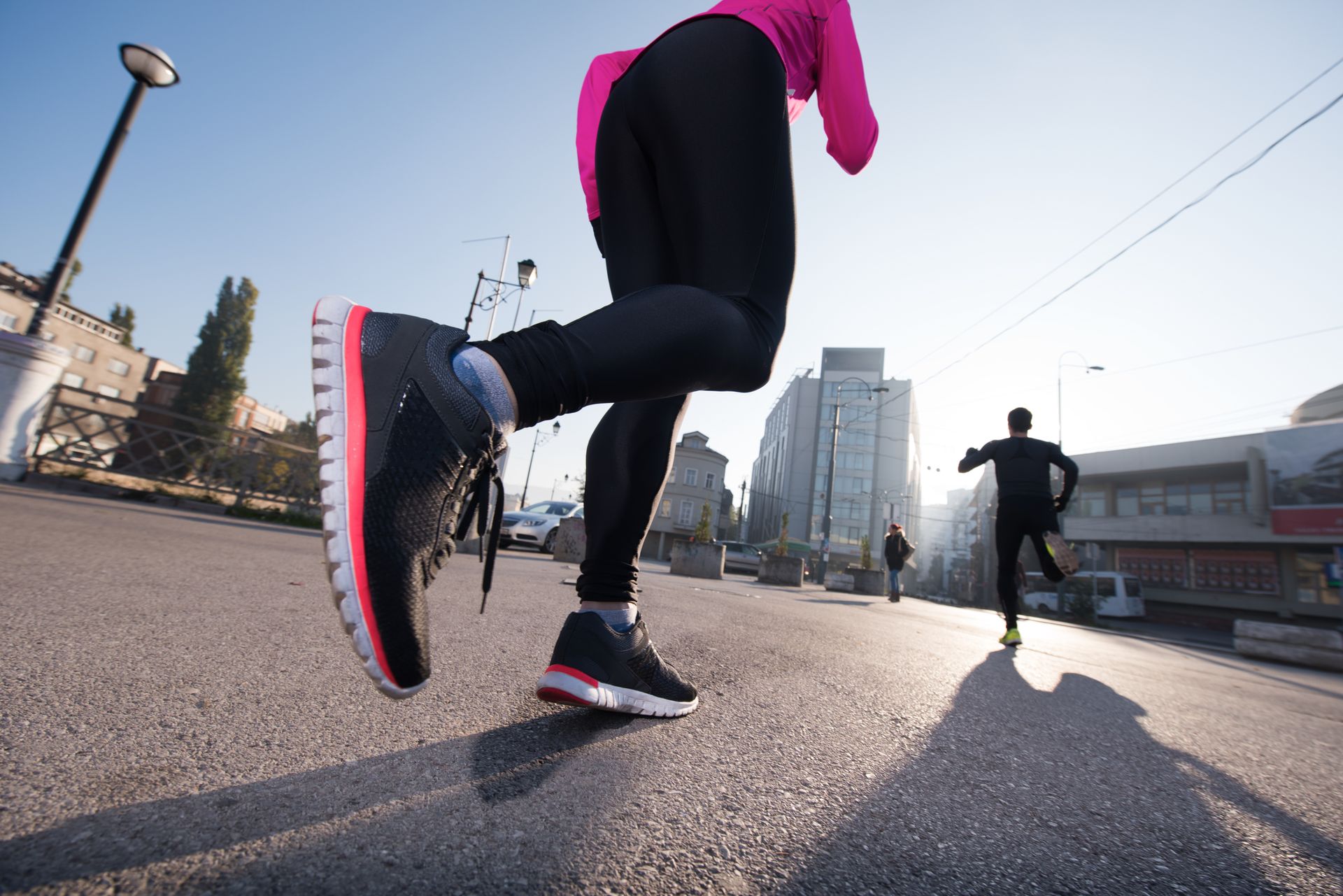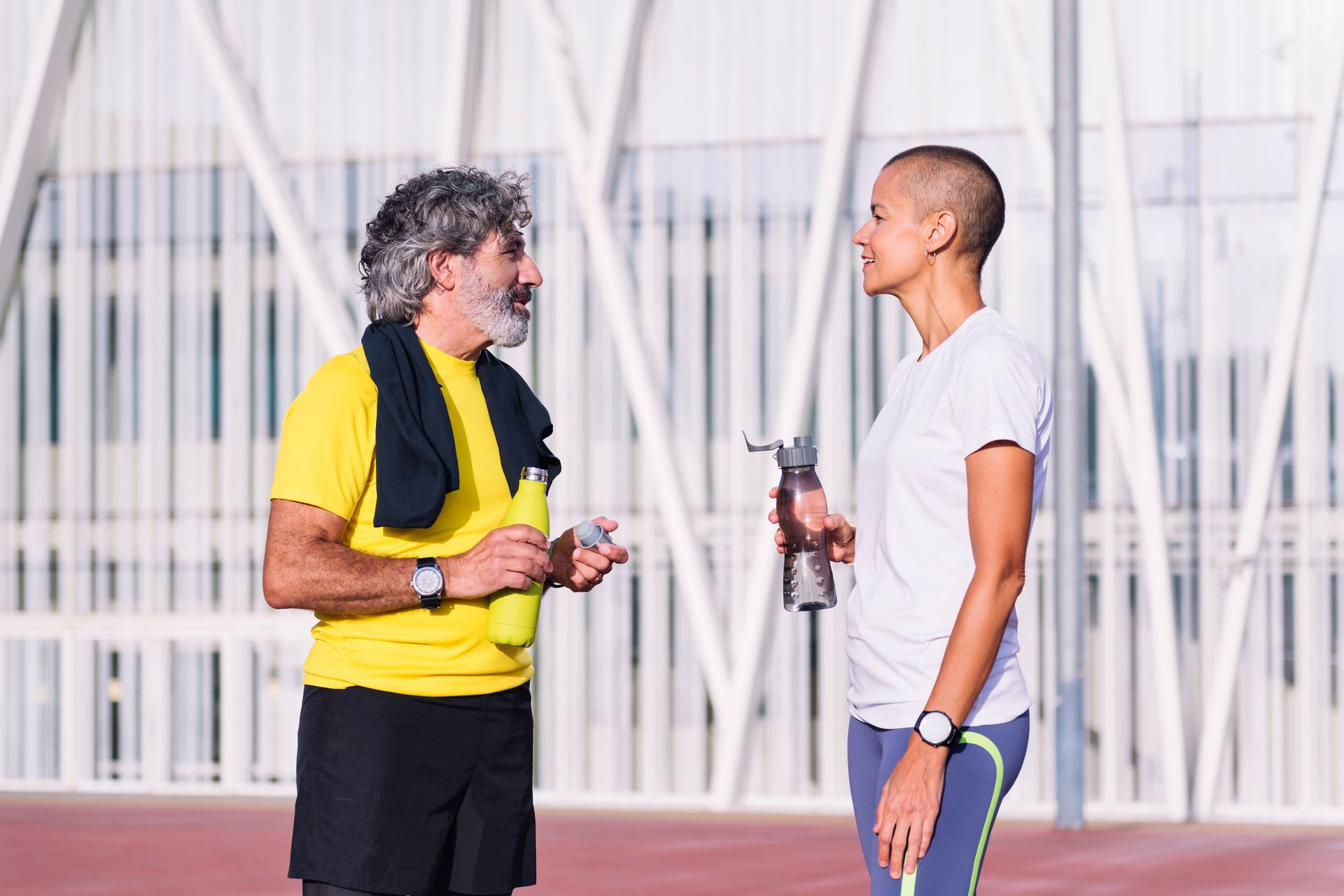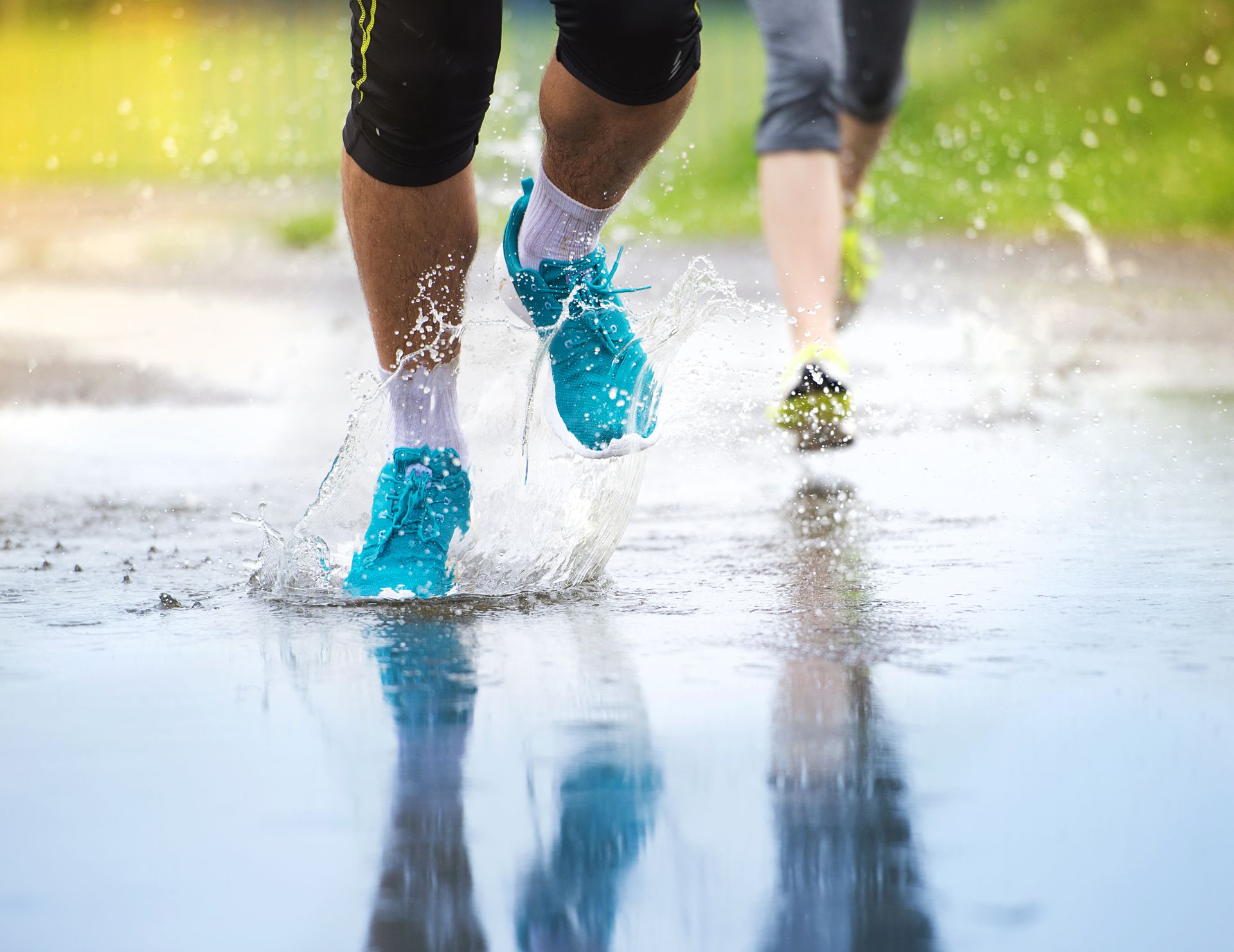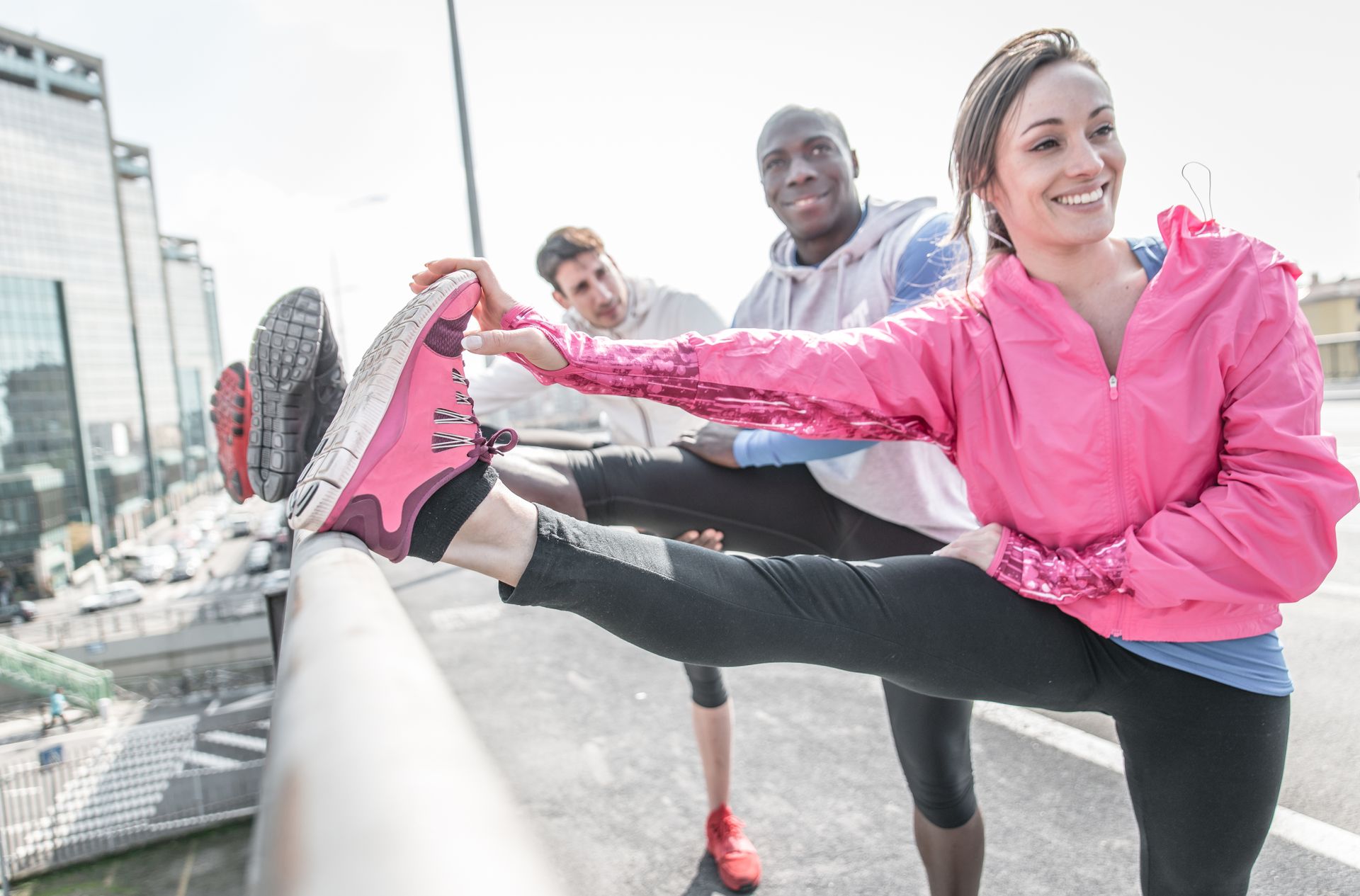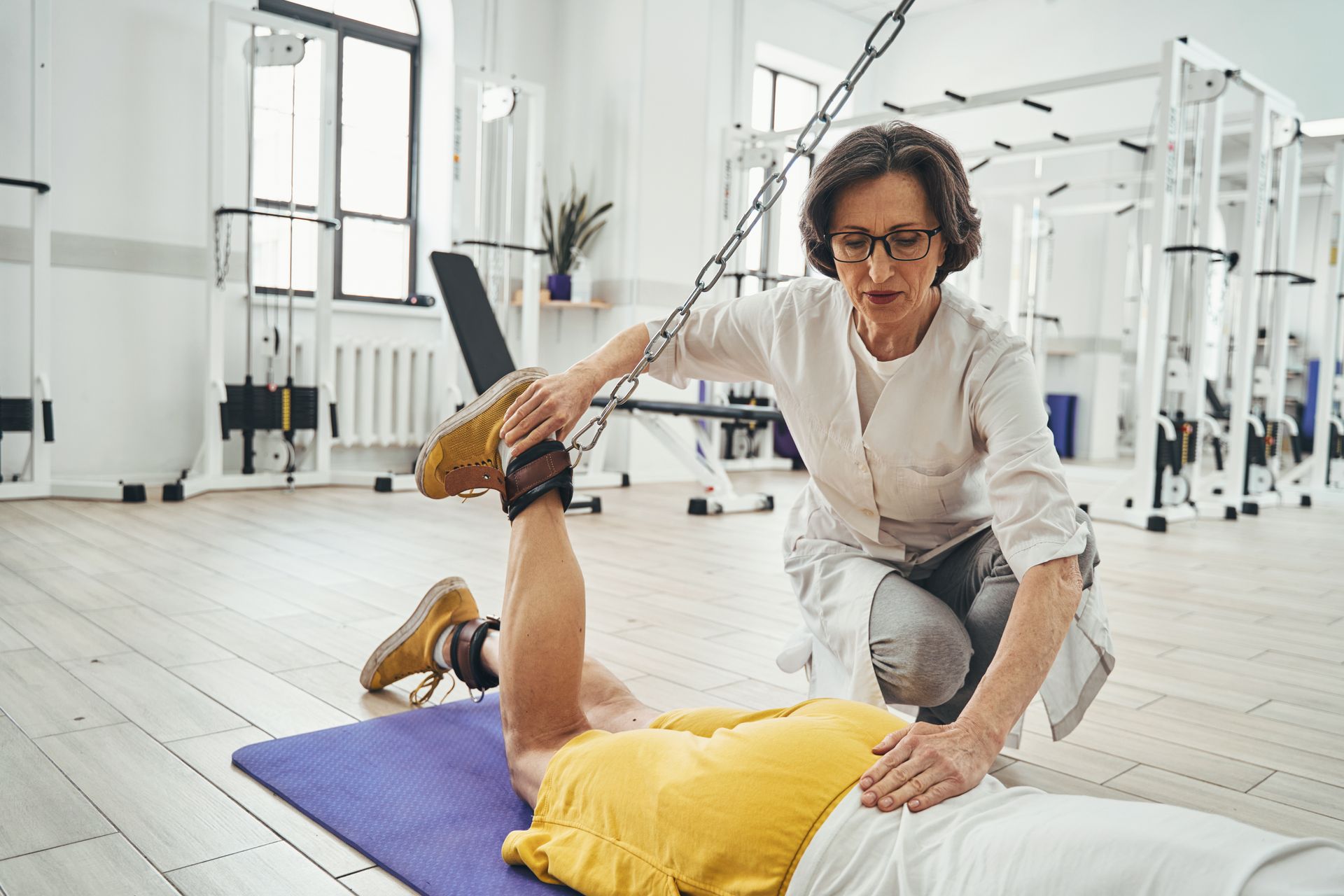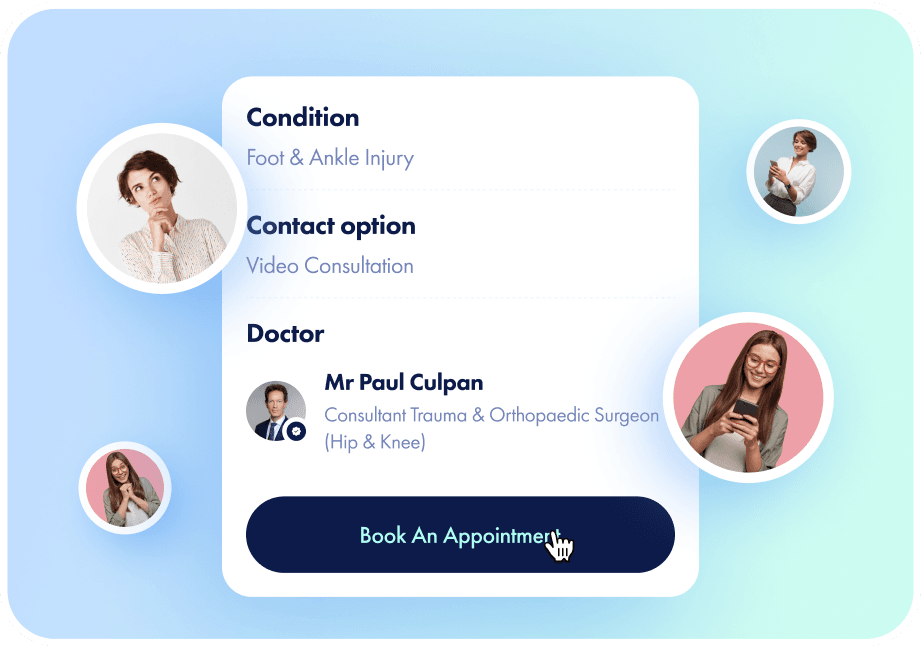Rest Up
First, put those running shoes aside. More miles could mean more damage. Try low-impact activities like swimming or biking instead.


Running injuries can arise from overuse, improper training techniques, muscle imbalances, or worn-out shoes. Common injuries include shin splints, stress fractures, tendonitis, and runner's knee.
You are not required to provide a referral letter from your doctor or GP.
Start a visit quickly and discreetly whenever works best for you.
Our doctors review symptoms, prescribe treatments if needed.
Proceed with your healthcare journey as you wish. You're in control.
You control medical records, access anytime.
When you're hit with a running injury, getting back on track means giving your body the chance to heal. Here's a guide on how to treat common injuries runners face. If the pain sticks around, though, it's time to check in with a doctor.
Diagnosing the injury is key. There are a lot of injuries which can mimick each other with treatments differing depending on what is wrong. Common investigations include ultrasound scans for tendon, muscle and ligament injury as well as MRI scans for bony stress injury and other soft tissue injury. Your sports doctor will be able to help with the best investigation for your problem.
First, put those running shoes aside. More miles could mean more damage. Try low-impact activities like swimming or biking instead.
An ice pack is your friend for knocking down pain and swelling. Use it often in the first few days.
Compression with bandages can help keep swelling in check and offer support to sore spots.
Prop up the injured area to help bring down the swelling.
Carefully stretching and massaging the injured area can ease pain and loosen things up.
Popping an over-the-counter painkiller can ease the ache. Think acetaminophen or something for inflammation like ibuprofen, but get your doctor's okay first.
Sometimes, healing needs a helping hand—that’s where physiotherapy comes in. Our London-based physiotherapists can guide you through exercises tailored for your injury, ensuring you recover properly and regain your strength.
It’s also smart to rethink your running routine. Less can be more when you’re hurting. Cut down on your running days and trim the distance. Give your body the space it needs to heal without the extra stress of your regular running load.
When specific injuries strike, your treatment might need to be just as targeted:
For knee pain from running, strengthening your thigh and hip muscles can help, as can loosening tight muscles. Special shoes might be the answer too.
Achilles issues often mean it's time to give those calf muscles some TLC with stretching and massages.
If it's your IT band giving you grief, daily stretches and hip strengtheners are usually effective.
Hamstring hassles? It could be time to tune up your glutes and hammies with specific exercises and even tweak how you run.
Plantar fasciitis sufferers might need calf stretches and foot strengthening to find relief.
Sometimes there is a need for a bit more intervention if things are not going the right way.
Specific treatments your sports doctor can help with are as follows:
Тhis involves high intensity sound waves delivered via a probe in a non-invasive way allowing the problem to be treated but also allowing you to train. This is a huge benefit as it allows you to maintain your fitness as well as treating the problem.
We offer different types of injections, both steroid and no-steroid based injections as well as novel treatments such as orthobiologics (such as PRP - platelet rich plasma) and viscosupplement injections.
Never run through the pain. If you feel something's off, press pause on your runs. And if that nagging ache doesn't quit, see a professional to get the care you need.
Сontact us to schedule an appointment or learn more
Conveniently reserve your spot with just a few clicks through our easy-to-use online booking system.
Have a question or request? Drop us a message, and our team will get back to you promptly.
Feel free to give us a call, and our friendly staff will be glad to assist you over the phone.
A solid start to running begins with your feet, and that means finding the right trainers. The goal is to have shoes that fit well and support your unique stride.
Visit a specialist sports store where experts can analyse your gait and guide you toward the perfect pair.
Always stay tuned into how you feel while running. A small ache can be a big signal from your body to take it easy.
Start at a comfortable pace, especially if you're just hitting the track. And remember, there's no rush. Increase your distance gradually using a structured training plan that eases you into higher fitness levels without overdoing it.
Technique matters. A poor stride can put undue pressure on your body.
Working with a coach or filming your runs could open your eyes to improvements. A few tweaks could mean fewer injuries.
Your running surface affects your joints. Soft paths like grass or tracks can be kinder than unforgiving pavement.
If you're currently nursing an injury, these forgiving surfaces can be key to your recovery.
Your body's fuel makes a huge difference. The right nutrition can power you up and speed up recovery after your runs.
Make sure your diet complements your training plan and fills up your energy reserves.
Before you run, give your body about 5 to 15 minutes to warm up with some light activity. While the jury's still out on pre-run stretching, it might help you get in the zone.
After your run, don't just stop. Wind down with a stroll and stretch out those worked muscles. It's a good habit for keeping you flexible.
Rest is as important as the run. Overrunning can lead to injuries, so pencil in those recovery days.
Mix up your run days with light jogs and challenging distances. This variety gives your muscles time to mend and adapt.
Injury-proof your body with regular strength workouts, like lifting weights or bodyweight exercises. Aim for twice a week.
These sessions help fortify your muscles against the demands of running.
Don't push through injuries—no matter how small.
Rest and consider seeing a physical therapist. They can assess the issue and get you on a recovery regimen suited just for you.
Consider cross-training with low-impact activities like cycling or swimming.
They can elevate your fitness while sparing your joints from the high-impact nature of running.
From Home or Face to Face, all at your convenience
Schedule a Video Consultation or a Face-to-Face appointment at your convenience by using our online booking system.
Schedule a Video Consultation or a Face-to-Face appointment at your convenience by using our online booking system.
Your dedicated Specialist Doctor will provide you with personalized treatment, tailoring it to your specific needs, and may include necessary medication.
Don't let a stress fracture, shin splints, or any other running-related injury slow you down from reaching your goals. Early intervention is key to a swift and successful recovery.
Take the first step towards healing and safeguarding your running future by scheduling an appointment with our London-based physiotherapists and sports and exercise medicine specialists today.



